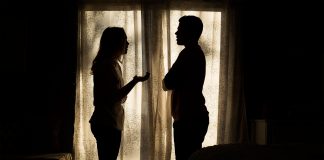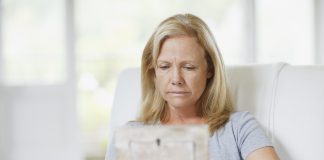Is it monotonous to be monogamous?
The possibility of completely rewriting the rules by which we organise our lives has always captured people's imagination. However, such a reorganisation has materialised, at best, in the pages of a philosophical book and has remained, for the most part, a utopia. But there are exceptions, of course.
How to speak to be heard
“The problem with communication is the illusion that it has been accomplished.” (George Bernard Shaw)
Alcohol consumption in the US has dropped to a record low
For the first time in US history, the majority of Americans believe that even moderate alcohol consumption is detrimental to health. Just 54% of Americans say they still drink alcohol. This is the lowest percentage in nearly 20 years. However, it has taken a long time to reach these conclusions.
The absurd maths of inequality
Since 2020, the wealth of the world's five richest people has doubled. Over the same period, almost five billion people in the world have become poorer[1]. Such an absurd expression of equality is, sadly, not unique and shows once again where injustice has reached in a society that thinks it is on the cusp of progress.
Seven books about change worth reading
Almost all bookstores today have a section dedicated to books on change, except that the generic name given to this category is "personal development", or "self-help".
How to navigate through pain
Loss begets pain, but pain is not one-size-fits-all, so there are no recovery methods that work in all situations. We do have at hand, however, explanatory models of pain, studies that dismantle myths about grief and, above all, "a psychological immune system" that helps us recover from painful experiences.
3 features of self-loathing people that can transform them
In sync with our modern culture, many people obsess about self-esteem, not really knowing what it means. Giving up self-loathing seems to them an impossible task. And indeed, how does one reach self-respect? Instead of a straightforward answer, here are some insightful questions to prove that you are worthy and that you can trust yourself.
At the crossroad of our thoughts
Our daily habits and actions constitute our state of mind. However, few people know that we hold great power over our own thoughts. Developing this power could pave the way for happiness.
31 days of Christmas
I love Christmas, and opening Nathan Brown’s book, Advent: Hearing the Good News in the Story of Jesus’ Birth, reading each page, is like opening a carefully wrapped Christmas present, undoing the gift card attached with ribbon and bow, folding back the bright cellophane wrapping and lifting the lid off a curious little box containing the Gift itself. The gift in this case...
Should I ever regret anything?
Two popular songs in the second half of the twentieth century have influenced entire generations, to this day, with a message we can call at least provocative: "Non, Je ne regrette rien" ("I do not regret anything"),[1] crooned to us by Edith Piaf, and "My Way", Frank Sinatra's melodic boast.[2]
How to raise confident children
While it can be healthy to be aware of other people’s judgement—we can adjust our behaviour to become more pro-social—sensitivity to the perception of judgement can get out of hand. In worst case scenarios, children can become depressed, anxious and avoid settings in which judgement is anticipated. Here are some strategies to help, as shared by clinical psychologist Katie Kjelsaas.
Methods to motivate a child to draw closer to the Bible
Regular reading of the Bible in childhood is a strong predictor of spiritual health in adulthood. If instilling a love for the Bible is a crucial factor in religious education, parents need to develop methods to reinforce a habit that keeps children on the desired spiritual trajectory.
Dealing with negative emotions in times of crisis
Many years have passed since I last lived with my brother. Recently, I decided to go and stay with him for a while. One day we both decided to visit a place in nature that neither of us had been to before. When we got there, it started to rain—while not very heavy, rain was not what either of us had wanted. But...
COVID-19: How has it affected young people?
Early reports out of China showed that elderly people and the chronically ill were most vulnerable to Covid-19. Yet an alarming number of young people in the United States have been hospitalized with severe infections. According to the Centers for Disease Control and Prevention, nearly 40% of American Covid-19 patients who were hospitalized were under 55 – and 20% were between ages 20...
COVID-19: When time no longer means money
As a teenager, I remember pasting a quote from Blaise Pascal on the wall of my room. It was a thought I resonated with, not without some arrogance: "All of humanity's problems stem from man's inability to sit quietly in a room alone."


























